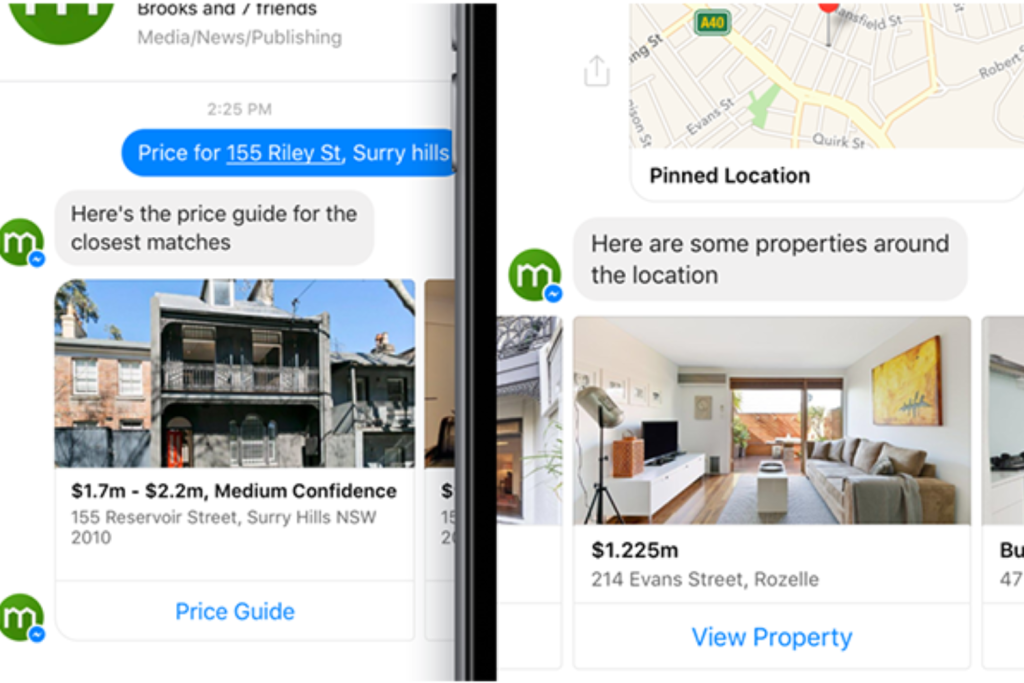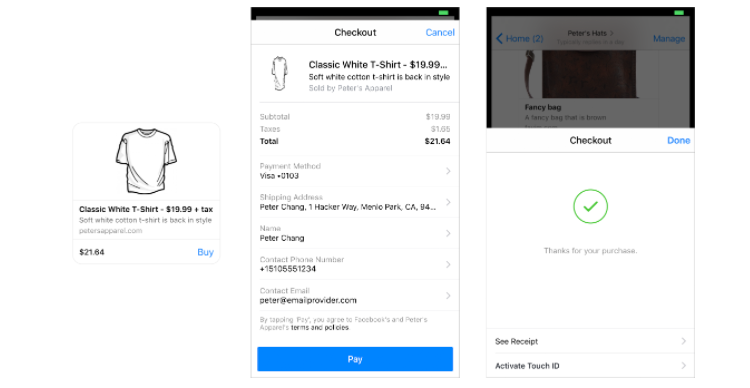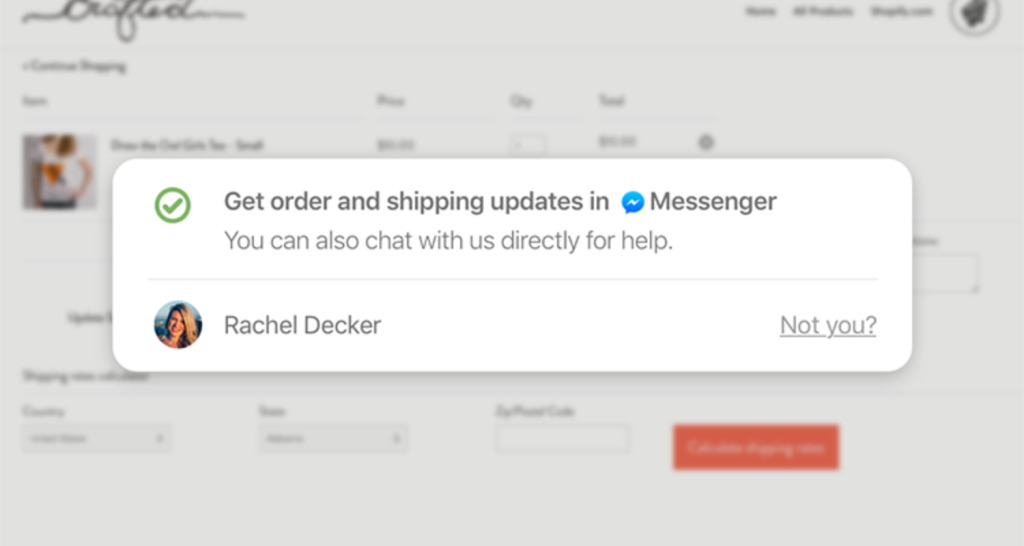A few years ago, Facebook decided to step up its game, adding new cool features to its Messenger service, like advanced chatbots. Using natural language processing (NLP), chatbots automatically handle messages for you. What’s more, Chatbots can go beyond text to send buttons, image galleries, and even invoices. Chatbots are more interactive and scalable than phone calls and much more responsive than emailing.
Remember when Facebook showcased a chatbot for 1-800-flowers? That was just the beginning. Since day one, chatbots have been a real game-changer, especially in ecommerce. More and more platforms, such as Shopify, have started incorporating chatbot apps for store owners.
These ecommerce chatbot apps revolutionized the way you can interact with your customers, making it really easy and efficient to offer great customer care while allowing you to streamline your business operations. Let’s go over the different ways ecommerce chatbot apps can help your online business.
Different Types of Chatbots
Chatbots come in different forms, each tailored to meet different needs and aspects of your ecommerce business operations. From simple rule-based to advanced AI-driven models, it’s important you understand this so you can choose the best one that suits your business needs.
Rule-Based Chatbots
The first versions of ecommerce chatbot apps are mostly rule-based chatbots. This type of chatbot simply sticks to the script. Using a ‘set of rules’, the chatbots follow different predefined pathways to respond to questions. You can think of this type as a ‘decision tree’ where it guides users based on the input.
Why they’re great
- Predictability: Provides consistent responses to most common questions
- Ease of use: No learning curve, quick to set up and deploy, perfect for FAQs and basic customer service
- Cost-effective: Less expensive to build and maintain
AI-Powered Chatbots
As we enter the dawn of AI, chatbots become one of the obvious use cases to utilize machine and natural language processing. With the use of these newer technologies, ecommerce chatbot apps became ‘chatbots with brains’. This type of chatbot can understand and response to questions with a more personal touch based on how you set it up.
Why they’re great
- Personalization: Tailored responses based on user preferences.
- Scalability: Handle large volumes of inquiries effortlessly.
- Continuous Learning: They get smarter with each interaction.
Hybrid Models
The best of both worlds. Hybrid ecommerce chatbots combine the structure of rule-based systems with the adaptability of AI chatbots.
Why they’re great
- Flexibility: Structured responses for routine tasks, adaptive for complex queries.
- Enhanced Customer Experience: Provide seamless support across a range of interactions.
- Efficiency: Handle simple tasks autonomously and escalate complex issues to live agents when needed.
How ecommerce chatbot apps help your business operations
1. Improve Conversion Rates on Mobile
The average smartphone conversion rates for online stores is about 4.18% compared to 6.08% for desktop websites. People are spending an increasing amount of time browsing on their phone, but still not purchasing at the same rate they do on desktops. Translating a store designed for desktop to mobile with a responsive website might not be enough to stay relevant.
So what does work on mobile? Messaging! Messaging apps have started taking over the mobile app industry in a very big way. Since it became popular in the 2010s, chat and messaging apps have become more advanced, and more so in the coming years. It’s been predicted that by 2026, people using messaging apps worldwide is expected to rise to up to 5 billion.

Conversational commerce is a new approach to mobile ecommerce. It utilizes messaging to provide your customers with the best shopping experience by letting them discuss their needs and ask questions about your products in real-time with a Chatbot.
2. Be Where Your Customer Is
Odds are, most of your customers are already using a social messaging app. In fact, you probably even have the option for them to log in to your site through their social account.
As opposed to email updates, Chatbots allow you to extend into the place where a customer naturally communicates with everyone else in their life. By reaching out where your customer already operates you reduce the friction of swapping between different channels and can encourage a personalized conversation around their order, as opposed to a generic email back-and-forth. The user will be grateful to have been handed a personal avenue to ask questions about their order, specifically creating the opportunity to have conversations around your brand.
While some might be (rightfully) hesitant to encroach on a user’s Facebook territory, it is important to take a more considered approach to Chatbots on social media than you would to social media overall.Chat is a more personal space often reserved for friends. Domain.com.au has shown a good example of Chatbot notifications done right with their bot that notifies the user of weekly auctions. Much like email opt-ins, Chatbots should respond only to user-initiated conversations or actions.

3. Make Purchasing Frictionless
Often, when talking with a customer over email or a help chat, the biggest amount of friction occurs when the user is ready to make a purchase. Traditionally, you could send them a link to an item or, ideally, a shopping cart. But Meta, the parent company of Facebook, started changing the game again with the introduction of Meta Pay (previously Facebook pay), which now integrates advanced chatbots in all its major products – Facebook, Messenger, and Instagram.

The introduction of chatbots on these platforms allows your potential customers to easily browse your products, get assistance from you, receive updates about their products, and even make payments – all directly from the chat interface.
Moreover, you can even automate your entire sales process from start to finish with the help of different payment processes such as Stripe and Paypal. This translates to more efficiency, personalized support, and 24/7 availability – ultimately improving the overall experience of your customers.
4. Personalized Shipping Updates and Customer Service
Gone are the days of SMS links and HTML emails. The Facebook messenger platform lets you send receipts, images, button menus, and even boarding passes to customers.

This translates to a better customer experience all contained in the one message feed instead of spread out across dozens of tracking notifications and emails. The novelty and convenience of receiving detailed shipping updates in chat will encourage conversations both with and about your brand.
5. Automate and Scale Your Business
Finding ways to automate your ecommerce store is the key to sustainable growth. As tools like wit.ai make natural language processing more advanced and accessible, the automation chatbots provide might extend beyond customer service and replace some of the tasks you might hire a virtual assistant to do. Already, we are seeing smart AI marketing assistants that help you create ads and social media posts.
According to Zendesk, customers prefer the option of self-service when available. Ecommerce chatbot apps are enabling this to go further than ever before. Repetitive tasks that cause malaise between your business and the customer (like handling returns and answering F.A.Q product questions) are increasingly being handled by virtual assistants or Chatbots. What’s more, having these tasks handled by a Chatbot lets you record, measure, and tweak its effectiveness.
The most exciting thing about Chatbots is that they are already in the wild today! It’s relatively simple to integrate them into your business to save time and improve your customer experience right now.
There are tons of ways to get started, including plug-and-play options. For the more adventurous, there are options like Chatfuel that let you create your own from scratch, and the Facebook Messenger Developer docs will give you an idea of what is possible right now. Try coding in some of your frequently asked questions so the next time a customer reaches out to you, they can get the answers they’re looking for immediately.
Wrapping Up
When done right, ecommerce chatbot apps can revolutionize business and help improve overall business operations. It improves the overall customer shopping experience and saves you time, resources, and money in your business.
Just make sure that you implement and integrate ecommerce chatbot solutions to your business smoothly. You want to make sure that you’re taking advantage of the many benefits it offers instead of adding “more work and expenses” for you and your team.








